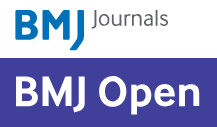Prevalence of drug use, alcohol consumption, cigarette smoking and measure of socioeconomic-related inequalities of drug use among Iranian people: findings from a national survey
Authors
Affiliations
Abstract
Background: Drug use can lead to several psychological, medical and social complications. The current study aimed to measure and decomposes socioeconomic-related inequalities in drug use among adults in Iran.
Methods: This was a cross-sectional study The PERSIAN Cohort is the largest and most important cohort among 18 distinct areas of Iran. This study was conducted on 130,570 adults 35 years and older. A structured questionnaire was applied to collect data. The concentration index (C) was used to quantify and decompose socioeconomic inequalities in drug use.
Results: The prevalence experience of drug use was 11.9%. The estimated C for drug use was – 0.021. The corresponding value of the C for women and men were – 0.171 and – 0.134, respectively. The negative values of the C suggest that drug use is more concentrated among the population with low socioeconomic status in Iran (p < 0.001). For women, socioeconomic status (SES) (26.37%), province residence (- 22.38%) and age (9.76%) had the most significant contribution to socioeconomic inequality in drug use, respectively. For men, SES (80.04%), smoking (32.04%) and alcohol consumption (- 12.37%) were the main contributors to socioeconomic inequality in drug use.
Conclusions: Our study indicated that drug use prevention programs in Iran should focus on socioeconomically disadvantaged population. Our finding could be useful for health policy maker to design and implement effective preventative programs to protect Iranian population against the drug use.
Keywords: Concentration index; Drug use; Inequalities; Iran; Socioeconomic status.

